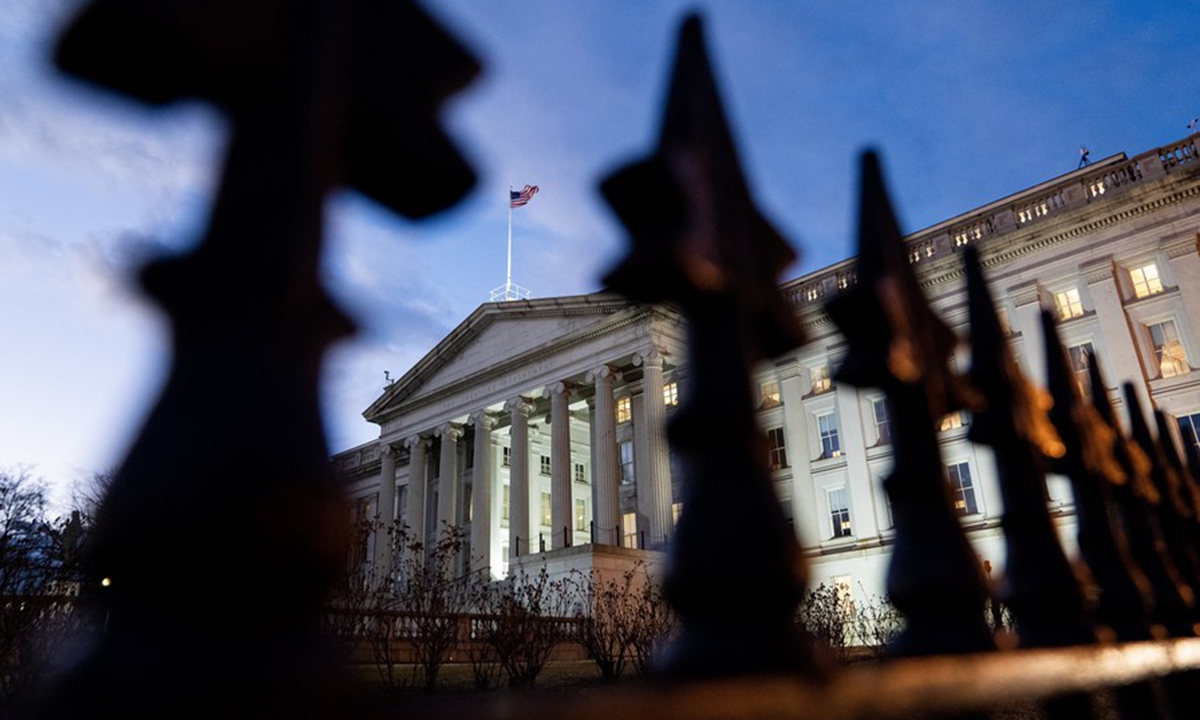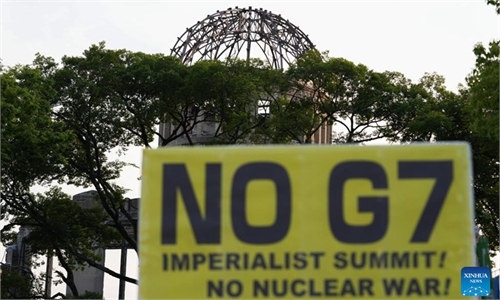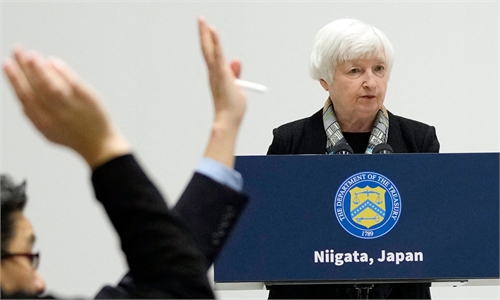US urged against passing risks to world amid growing chance of a US default
Washington’s brinksmanship could lead to global crisis: experts

This photo taken on January. 20, 2023 shows the U.S. Department of the Treasury in Washington. File photo: Xinhua
A Chinese official on Tuesday warned of the significant spillover effect of US domestic policies and urged Washington to avoid passing on domestic risks to the rest of the world just to protect its own interests. The comment came after US leaders failed to reach a deal on the debt ceiling issue, with the deadline to avert the first-ever default approaching rapidly.
While many analysts still expect a last-minute deal to avert what could be a disastrous US default on its obligations as soon as June 1, the crisis has laid bare the mounting risks to the global economy from increasingly irresponsible US policies and toxic partisanship in the world's biggest economy. China and other economies must prepare for the eventuality that the US will default on its debt sooner or later, analysts noted.
After returning to Washington from his trip to Japan, US President Joe Biden held another round of talks with Kevin McCarthy, the Republican speaker of the House of Representatives, at the White House on Monday US time, according to media reports. While the two US leaders said that the meeting was "productive," they failed to reach any deal to raise the US debt ceiling.
US officials have repeatedly warned that without raising the debt ceiling, the US government could run out of cash to cover all of its obligations as soon as June 1. In order to meet that deadline, the two sides must reach a deal this week, so that Congress will have time to pass the necessary legislation, according to the Wall Street Journal.
The partisan fight has sparked widespread concern about the potential negative spillover effect on global financial markets and the world economy as a whole, as the US is the biggest economy in the world and its currency is widely used in global commerce.
Many countries also hold considerable amounts of US Treasury debt that could be affected by a default. China, for example, is
the second-largest holder of that debt.
Asked about the issue, Mao Ning, a spokesperson for the Chinese Foreign Ministry, told a press briefing on Tuesday that while the debt ceiling issue is an internal US affair, the US situation and policy choices will have a major spillover effect on the world economy.
"It is hoped that the US will adopt responsible fiscal and monetary policies, and not shift its domestic risks to the rest of the world, while refraining from undermining the world to safeguard its own interests," Mao told the press briefing.
If the US were to default on its obligations, it could be devastating not just for the US economy but the world economy as a whole, analysts said. In the immediate aftermath of a US default, the US economy could shrink by about 1 percent and 1.5 million people could be put out of work, according to Moody's Analytics.
In a much more dangerous, longer-term default scenario, the stock market could fall as much as 20 percent and 8 million US workers could lose their jobs, according to Moody's.
"This is just a political game between the two parties in the US, and the probability of solving it sooner or later is relatively high," Gao Lingyun, an expert at the Chinese Academy of Social Sciences in Beijing, told the Global Times on Tuesday, noting that the markets are expecting a deal.
However, if a deal can't be reached before the deadline, the consequences will be severe, according to Gao. "The US faces a great default risk, which will have a knock-on effect on other countries and may turn into a global crisis," he said, while noting such a possibility is small at the moment.
Following the meeting on Monday, Biden reiterated that "default is off the table" and the two sides will continue to hold talks, according to the Wall Street Journal.
Still, some experts said that even if the two sides eventually reach a deal, it will most likely be just a temporary solution, as the two parties remain too far apart on US government spending levels, taxation and a long list of other policies.
"The deeper issue is that the US economy is in long-term trouble, and spending levels in the US, including its astronomical amount of defense spending, have become increasingly unsustainable. At the current rate, it will collapse, and that will be devastating for the world," a Chinese expert surnamed Mei told the Global Times on Tuesday.
As for China, the crucial task is still to ensure sustained, high-quality development of the Chinese economy and bolster its own capabilities to fend off external risks, Mei said.



